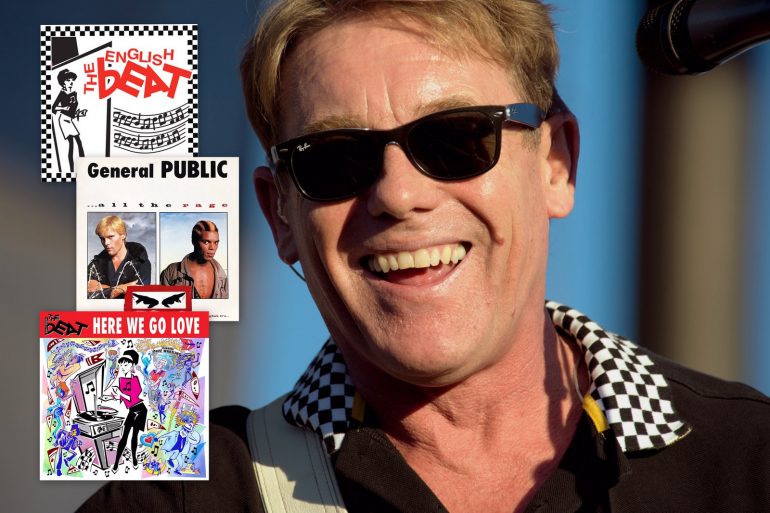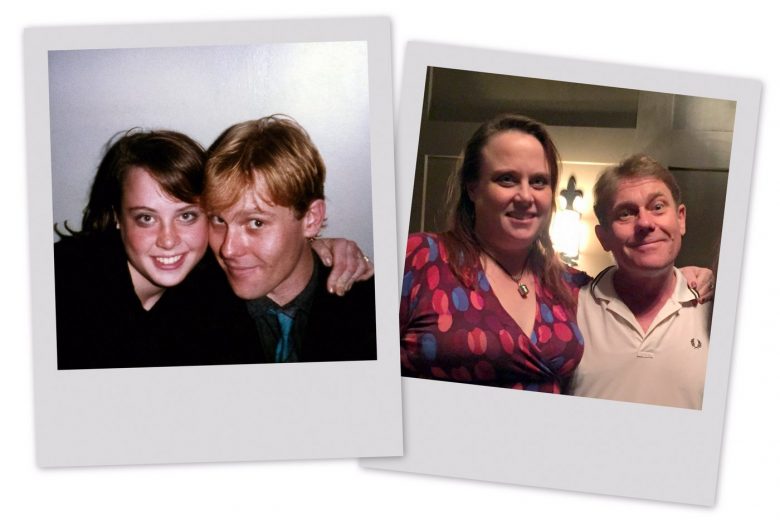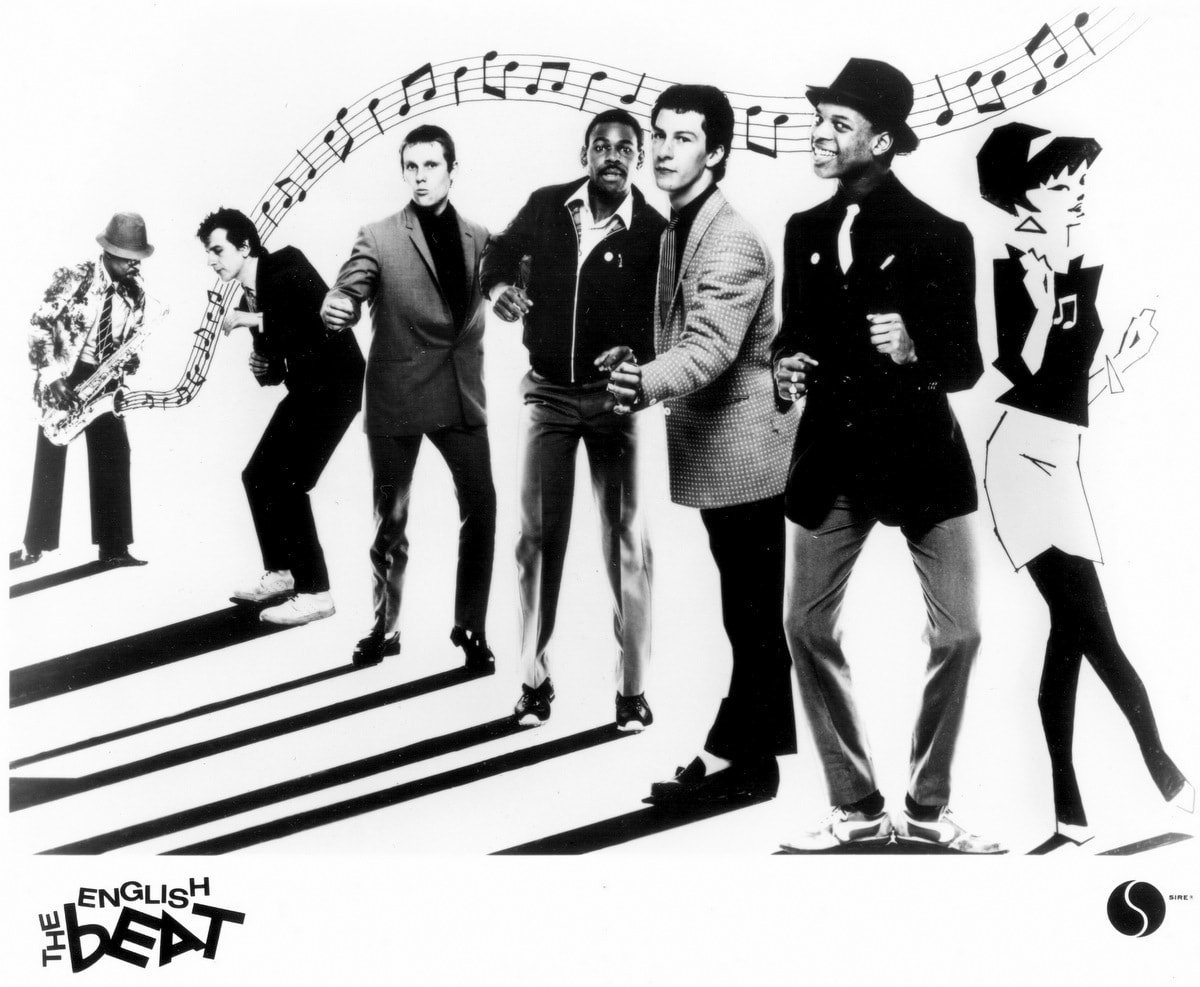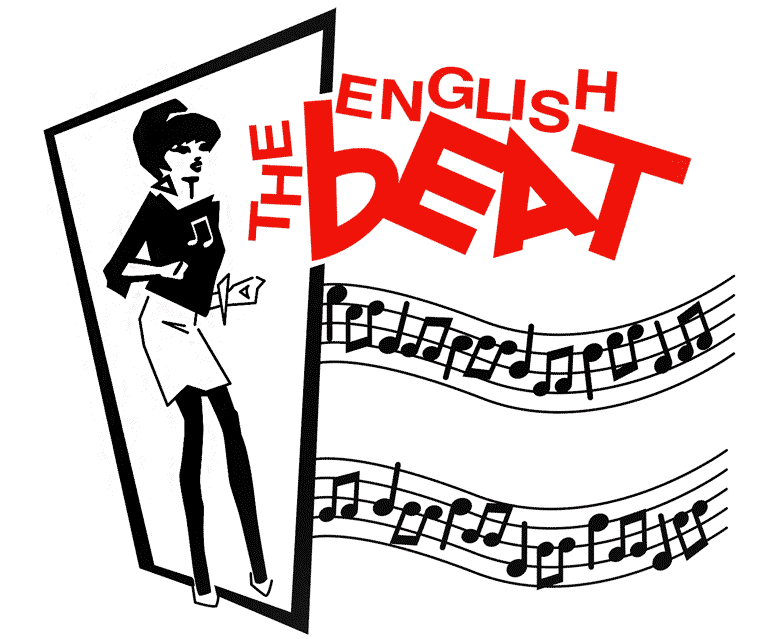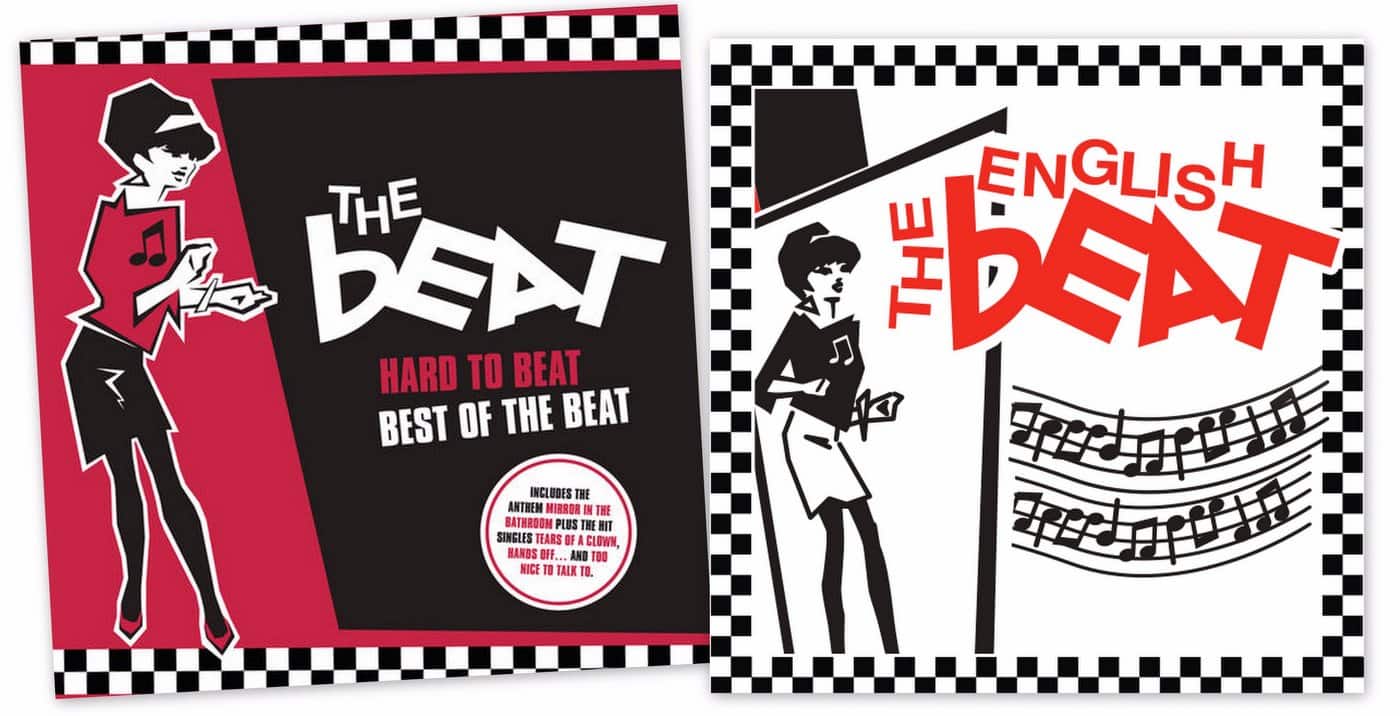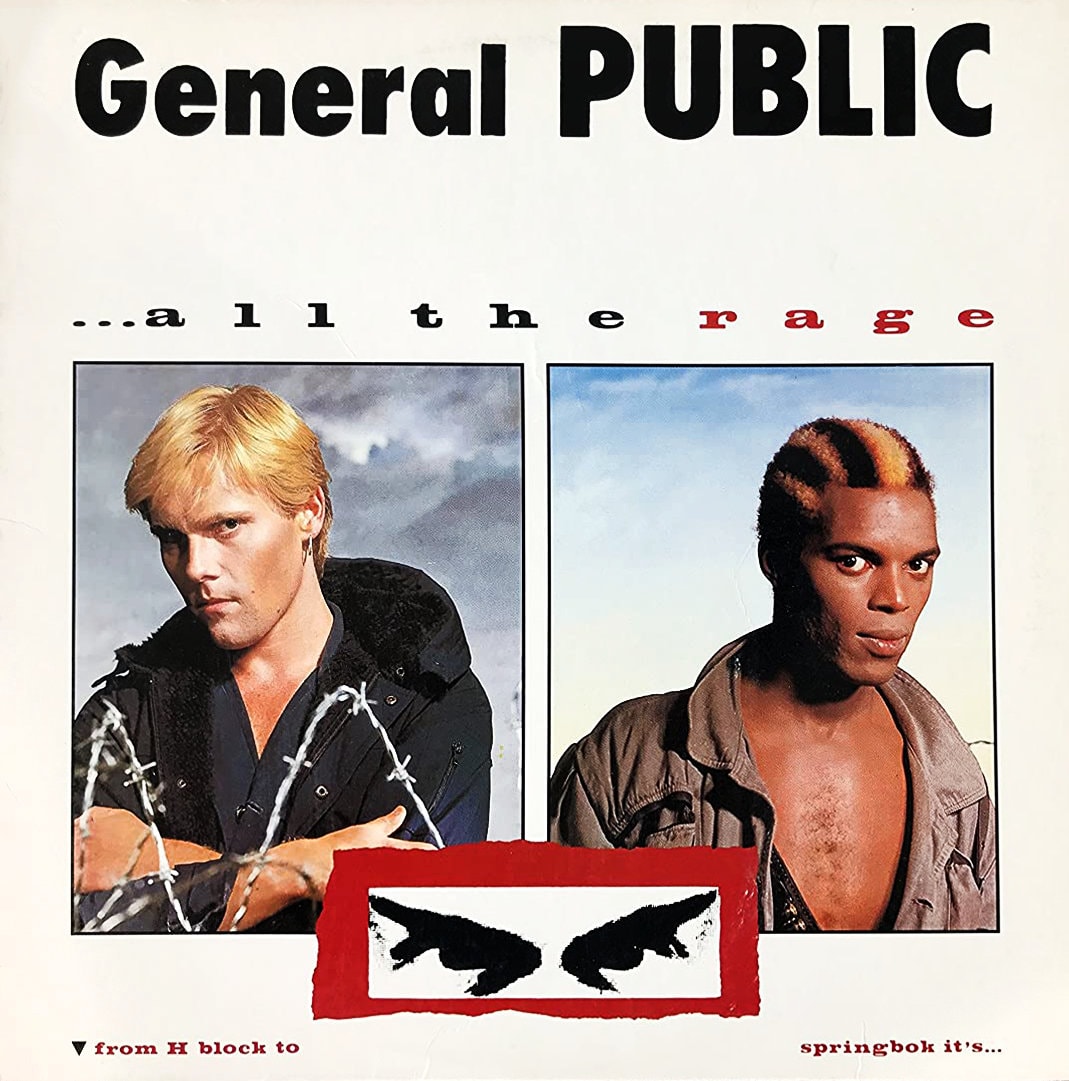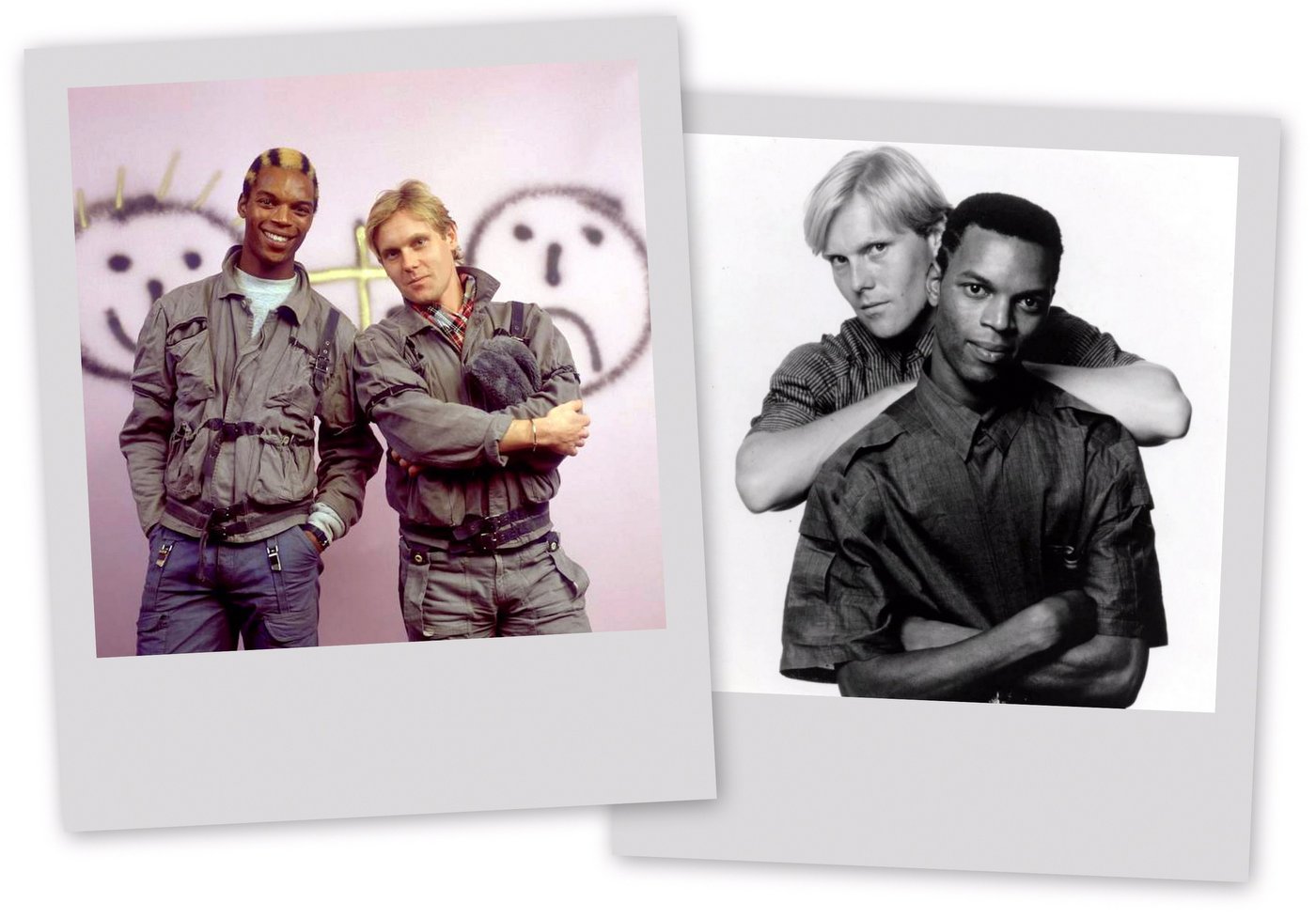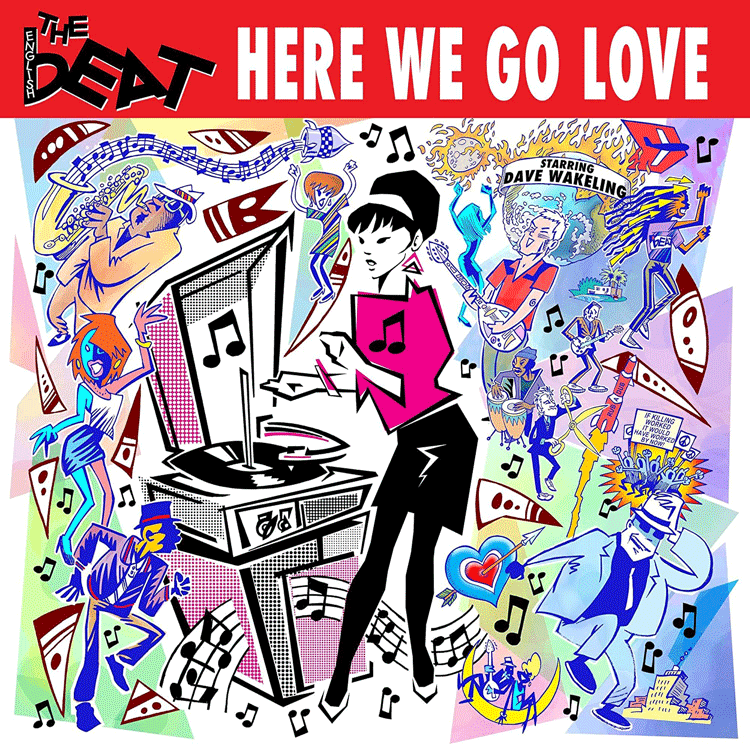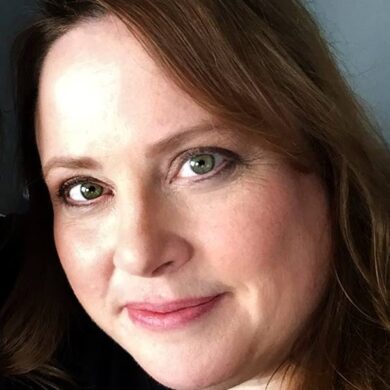Growing up with General Public & the English Beat (from 2015)
When I first met Dave Wakeling, it was 1985. Just 15 years old, I’d recently come off a lengthy Duran Duran bender — time that helped me realize music could do more than fill aural space at supermarkets and in elevators.
I was finally ready to expand my musical horizons, and what caught my ear was a world of alt-rock, post-punk and ska-infused pop.
General Public arrived on the scene just in time to feed my new addiction, and once a US tour was announced, I started saving up my babysitting money so I could buy myself a ticket.
That’s how, late one cold March night — after the band’s spirited performance in front of a capacity crowd in Oakland, California — patience, hope and luck converged.
Thanks to Mr Wakeling’s willingness to shake hands and take photos with fans, a starry-eyed, danced-out girl got to go backstage to snap a picture with one of the men whose voices decorated her life.
For him, it was just a couple of minutes out of a very busy day on a very busy tour during a very busy year. But for me? It was a defining moment — not only for a memory I still treasure, but as an experience that helped propel me into a journalism career. (I caught up with the band again in late 1986, and shot some of the photos shown below.)
Because of that same career, thirty years later, I met with Dave Wakeling once again — this time in Arizona at the start of 2015 — and we had a proper sit-down chat.
The modern me was undeniably older, hopefully wiser, but still starry-eyed… because some things just never change.
Here’s what I learned: Dave Wakeling is a reminder to every last one of us that time flies, wealth evaporates, and fame fades — but talent and passion can keep us rocking long after the needle leaves the vinyl.
The beginning: The Beat
With a ska-infused cover of Smokey Robinson’s Motown classic “Tears of a Clown,” The English Beat debuted on the British music scene in 1979. Fronted by Dave Wakeling and Ranking Roger (Roger Charlery), the group was considered part of the 2 Tone/ska revival movement — but that’s not all they were.
“Primarily we were a punk-reggae party band — that was the idea,” Wakeling said in a 2009 interview with the Riverfront Times. “Really, we wanted to get a blend of Toots & the Maytals and The Velvet Underground.
“Once we got that down, we realized it was quite close to ska beats, and we incorporated some songs like that, too. But we were more influenced by Motown than ska.”
Whatever their secret recipe, the band’s music was never typical of the seventies or the eighties — one reason why the songs have earned the label “classic” instead of “retro.”
It’s no surprise, then, that their work has proven to be influential to many other bands, including No Doubt and the Mighty Mighty Bosstones.
In particular, “Save It For Later” — which, despite only modest chart success, is arguably The Beat’s best-known song — has been covered by artists as diverse as Pearl Jam, Harvey Danger, The Wonder Stuff and the legendary Pete Townshend. (The Who star even called Wakeling to get the song’s chords after he and Pink Floyd’s David Gilmour couldn’t figure them out.)
The song’s popularity makes its origin story all the more amusing. Wakeling has confirmed numerous times that the title was initially “a sniggering schoolboy joke” — his way to get away with saying “fellator” on the radio.
That’s all perfectly in keeping with Wakeling’s songwriting style — then and now. The sweet-faced grown-up boy is a master of wordplay, producing lyrical prose layered with meaning… and enough double entendres to make your mom want to wash his mouth out with soap.
The Beat goes Public
In 1983, just three records into their career, The Beat (known as the English Beat in America) suddenly stopped. Initially, the reasons behind their demise were vague, and later statements like “the spirit wasn’t there anymore” only further muddied the waters.
The fact that Wakeling and Roger’s new group, General Public, rose almost immediately from the ashes led many to conclude that the two frontmen had pushed for the split.
Wakeling, though, says that’s not how the story really goes. The genesis of the new band was apparently much less controversial — and far more prosaic — than many realized.
“The truth about The Beat was that I wasn’t the executioner — I was just the one who went to the office of records to report the death,” he says.
“The Beat had been finished for about six to nine months by the time it happened, and some of the band wanted two years off. They didn’t want to go anywhere, do any gigs. They’d got a bit of money saved up and they didn’t want to do anything.”
He explains that success had wrought a degree of creative fatigue. “The notion was that there were more planes than buses nowadays, and that if we weren’t careful, we’d end up writing songs about barreling down Rock ‘n Roll Boulevard and hot chicks on a tour bus.”
Given that, what drove the men to dive right back in again? In a word: money. Not greed, but plain old needing to work to make ends meet.
“Me and Roger couldn’t afford two years off — we had started families and both had a kid each — and Virgin offered us a record deal.”
And with that, General Public was born, and immediately hit their stride with the hit single “Tenderness” from their first album All the Rage. Although the new band’s songs were more pop and less ska, Wakeling’s distinctive voice was a constant.
But the success that looked almost effortless from the outside was the result of so many twists and turns and ups and downs, even the players had their doubts.
Doing it his way
Despite how nostalgic many of us are for the 1980s, Wakeling seems to regret — with more than a touch of annoyance — some of the choices he made in the past.
When asked what he regrets, or wishes he could go back and tell his younger self, he immediately answers, “Never trust yourself. Never believe yourself.”
After a breath, he explains. “Because in a year’s time, you’ll look at a photograph and think, ‘What on earth was I wearing?’ Ten years later, you’ll go, ‘Why on earth did I have my hair look like that – I look stupid!’
“And each time… I was absolutely certain of myself, you know? In every photograph, when I had my picture taken, I was really certain of myself at the time, and a year later you are like, ‘What an idiot.'”
Given that almost everyone who lived through the eighties feels this way about our old photos, that inner monologue was probably about much more than just iffy fashion sense.
“I’ve gone through life feeling fairly certain about myself most of the time, only to think a year or two later that I was completely wrong. And I think that’s part of the human condition,” he says.
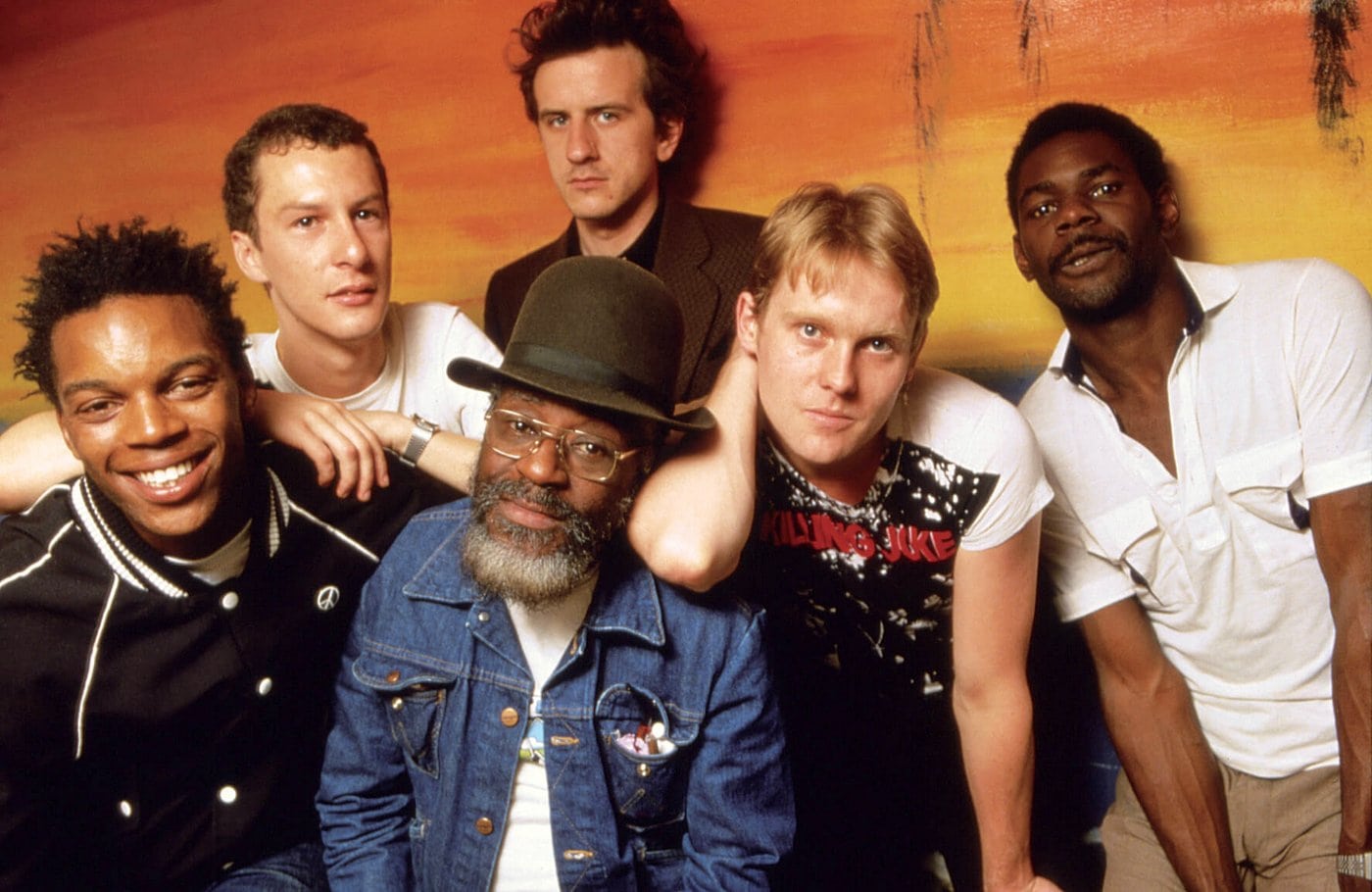
“The problem for me with that is that I feel like I know what is going on, and it turns out I don’t. Because it’s perception rather than what the reality might be. Or that reality is just a combination of everybody’s perception who’s involved in that particular interchange. It’s both comforting and terrifying, really.”
The moral of this particular story? “You might learn that the only thing you ever learn is that you never learn,” he says. “Starts off as black and white, and ends up as at least fifty shades of gray. A hundred and fifty shades of gray, and no black and white after a while.”
While his career path may have looked pretty black and white — especially arranged in a checkerboard pattern — it’s clear that, from his perspective, there’s been lots of grey that the fans hardly noticed.
As Wakeling told a Chicago Tribune reporter in 1984, “The problem is that you tend to get your inspiration for your songs when you feel the most idealistic, and then you have to spend the rest of your life desperately struggling to live up to your best moments.”
Reviving the English Beat
Back in 1987, at the end of General Public’s initial incarnation, I wrote, “It seems that every few years this Dave/Roger unit should mutate, and then eventually divide.”
True to form, Dave Wakeling and Ranking Roger joined forces again as General Public in 1994 to release their cover of The Staple Singers’ “I’ll Take You There.”
While the song was a hit — reaching number 22 on the Hot 100 singles chart, and earning them a Grammy nomination for best R&B song — the reunion was short-lived after GP’s final studio album, Rub It Better, didn’t make much of a splash.
ALSO SEE: How can you convert vinyl records to digital?
Although I followed the band’s work through the mid-nineties, never did it enter my mind that two decades later, Dave Wakeling would still be recording and touring regularly — particularly under the banner of The English Beat. So why did he decide to revive the name?
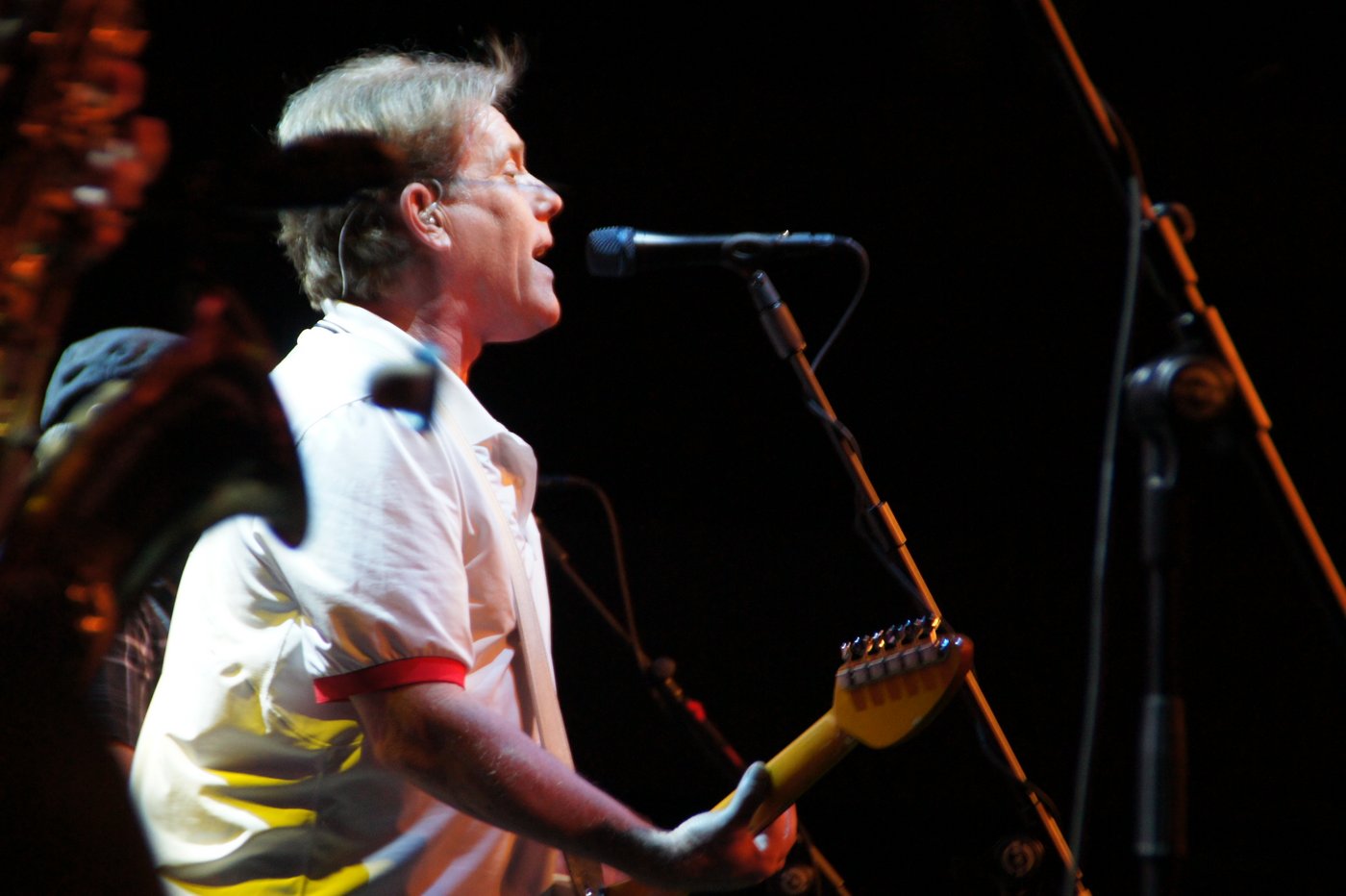
“Public demand,” he shrugs. “The market kind of dictated it.” But it took some experimentation.
“Quite a while ago, when I had the group Bang! — oh, I had all sorts of things in the contract: ‘You can’t mention The Beat, can’t mention General Public — just say it’s Bang! with Dave Wakeling.’
“I’d get to the show and it would say, ‘Tonight: English Beat, General Public, Dave Wakeling and Bang!’ — like it was four bands. And the line was around the block. What do you say to the promoter?”
The evolution was slow, but organic. “I finally thought, well, after twenty-odd years of people saying it, you might just have to go with it,” he says. “If you’re playing a dozen English Beat songs, and you’re the person who sang them in the first place, it’s understandable.”
With a shrug, he adds, “It’s not a perfect solution, but it’s gone on for seven or eight years, so it’s pretty well accepted and established now.”
We’ve got The Beat(s)
While General Public achieved greater chart success than its predecessor — thanks in part to their MTV-friendly image — the less-poppy English Beat is the band more often heralded as being “important” and “influential.”
All of that is probably why there’s no more General Public, while The Beat goes on in many guises.
“Roger has a Beat in England — I said it was okay for him to use the name,” Wakeling says. “But now most of the people in his band have all left and formed their own band called, oddly enough, Beat Goes Bang. How weird is that? And they’re all singing my songs. It’s fantastic. So now I’ve got two cover bands in England.”
As cozy as that may sound, if you expect all is well between the men who fronted two bands together, think again.
When asked if he’s on good terms with Ranking Roger, the smile disappears.
“No, sadly not,” he says. “We have been on and off on pretty good terms, but it’s sort of become ‘Battle of The Beat’ now. He thinks that if I was to come to Birmingham [England, the band’s original hometown] to play a concert, I am treading on his territory.” (Apparently, love and unity isn’t always the only way.)
He cites an example from 2014. “We invited him to come on tour in England… He said he needed the weekend to think it over. Okay great, we’re all optimistic,” Wakeling says. “Then Monday he has his people announce 20 shows in the same period. He’d spent the weekend booking up all the gigs so as I couldn’t come over.”
Despite the obviously disheartening experience, Wakeling delivers the story with a huge laugh. “Perhaps he feels a little bit odd singing so many of my songs – I don’t know,” he says. “I don’t mind, but 14 out of 20 songs he sings I wrote.”
After a pause, he swings it all around to an optimist’s perspective.
“I think it would be better to get on, but, in a way, I don’t really mind it. Because, you know, life’s about cooperation — but it’s also about competition,” he says. “Sometimes a combination of the two brings out the best in folk. And that little bit of edge between me and Roger has made me work really hard on the next record.”
[Editor’s note: Ranking Roger (Roger Charlery) died on March 26, 2019. He was just 56.]
Here We Go Love
That next record is, in fact, the first new English Beat studio album since 1982’s Special Beat Service, and this time, he’s doing it without the help of a major label. To help pay to record the new tunes, the self-confessed Luddite — who only recently mastered the miracle of copying and pasting — turned to the internet.
The internet answered back, eagerly supporting the crowdfunding campaign for the forthcoming Here We Go Love, and earning goodies like handwritten lyric sheets, backstage passes and personal jam sessions as their part of the win-win.
As he wrote on PledgeMusic [no longer online], “The songs have been hand-picked from a cauldron of passion, cuddled for endless nights, then tested for connectivity in front of selected crowds, and are now ready to be fully realized and revealed!”
From the snippets released so far, it’s clear that world politics still feature in his new lyrics, as do his revealing takes on love… but some topics have a different timbre nowadays. For example, one of his newer songs, “The Love You Give,” was inspired by the death of his mother.
While this is his first full-length album since his heyday, Wakeling’s first single since 1994 was 2010’s “The Love You Give,” a version of which he contributed to an organization called Acoustic for Autism, to benefit kids and families living with autism. He also wrote and performed a song to a 2013 episode of Scooby Doo, wherein a band of zombies sing “You’re Dead Right, Mate.”
The market for new material is due in no small part to Wakeling’s virtually non-stop touring, zig-zagging back and forth across the United States — along with occasional stops back in the UK and elsewhere, plus bonus shows around his adopted hometown in Southern California.
Every one of those performances is different because the audience always plays a role. There’s no set list written out before each show — he takes requests, gauges the crowd’s vibe to choose songs, and slips in some new tunes every now and then to see how the fans react.
Since he’s played hundreds of gigs over the past few years alone, one has to wonder: Doesn’t it ever get old?
“No,” he laughs. “But I do!”
That said, Wakeling is under no illusion that being in a rock band means that he — and his audiences — haven’t grown up.
“We’re trying to do it with some style and grace. We’re trying to not pretend we’re 20,” he says. “I don’t like going to watch old bands trying to relive the glory days instead of being who they are.”
More wrinkles and less hair is just what he expects to see.
“Luckily, here in America people seem kind of comfortable with who they are, oddly enough. Whereas when I went to England, there was a lot of reliving — ‘Come on, let’s all pretend were 18!’ — for the first minute of a song, then they all had to stop and rub their knees. ‘Oh my knee’s gone out!'”
Never too nice to talk to
Wakeling is so warm and welcoming to everyone he meets, I’m sure more than a few people — myself included — have worried that he thinks we’re somebody else.
But no — it’s just par for the course with the man. It’s also nothing new, as I noticed the same phenomenon when I met Dave a second time back in 1986.
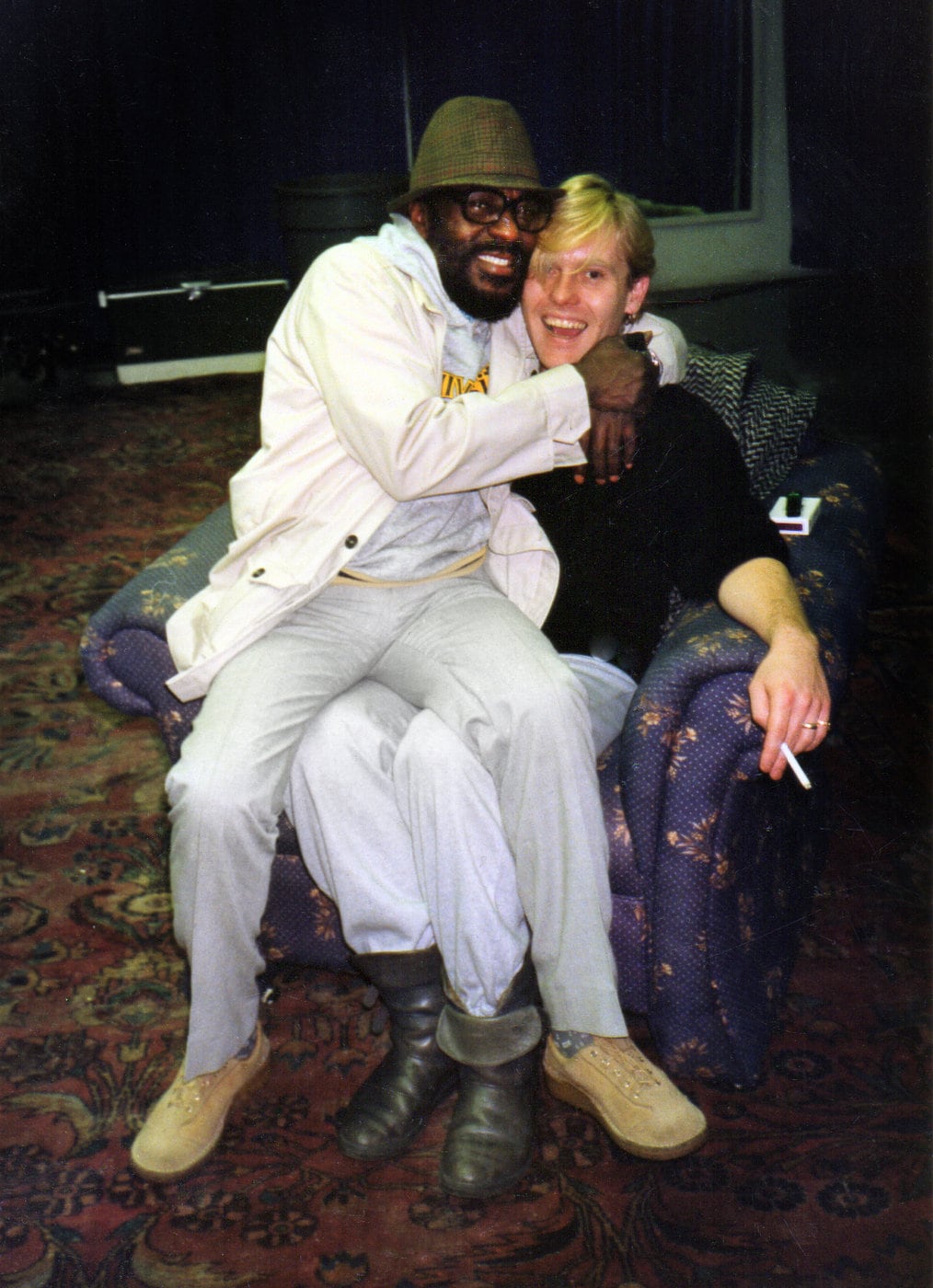
“GP never seemed to tire of greeting their fans, and are always so cheerful about it,” I wrote in a fanzine article at the time. “It’s amazing. I’ve never seen a band handle their fans so nicely.” (See some photos and handwritten Q&A from that day here.)
MORE: What is a fanzine? The basics of these DIY magazines
The same holds true today: At the end of each concert, he will stay on stage and shake as many hands as he can reach. Then, after every show, there’s a meet and greet for the English Beat Street Team and others.
Backstage, it starts to seem like he’s figured out how to manipulate the fabric of time. That’s the only way to explain how he’s never in a hurry, never seems to rush anyone along… yet somehow finds a moment to chat with everyone he meets.
Wakeling’s interaction with his audience isn’t incidental — it’s integral, and seems as vital to his soul as air is to his body.
The life of a troubadour
So what makes him the most proud?
“Simple. People come up to me and say, ‘Your songs have meant the world to me. For thirty years, they’ve helped me through two divorces and the death of my mother, and my daughter being hit by a car and paralyzed’ — or whatever it is.”
“So they tell me their life stories about it, and how certain songs were their favorites and they used them in the delivery room, and here’s a picture of the kid. And they tell me which song they lost their virginity to in the back of a car,” he laughs. “And you get all the stories about how your little songs and struggles became part of their quilt. Part of their tapestry.”
In short: It all comes back to the fans.
“As a troubadour, you can’t really want for much more,” he says. “As a person — as a man — you’d want millions and millions of dollars. But as a troubadour, there’s nothing greater than somebody saying, ‘Your songs have really helped me for thirty years.’ I’m stunned, really.”
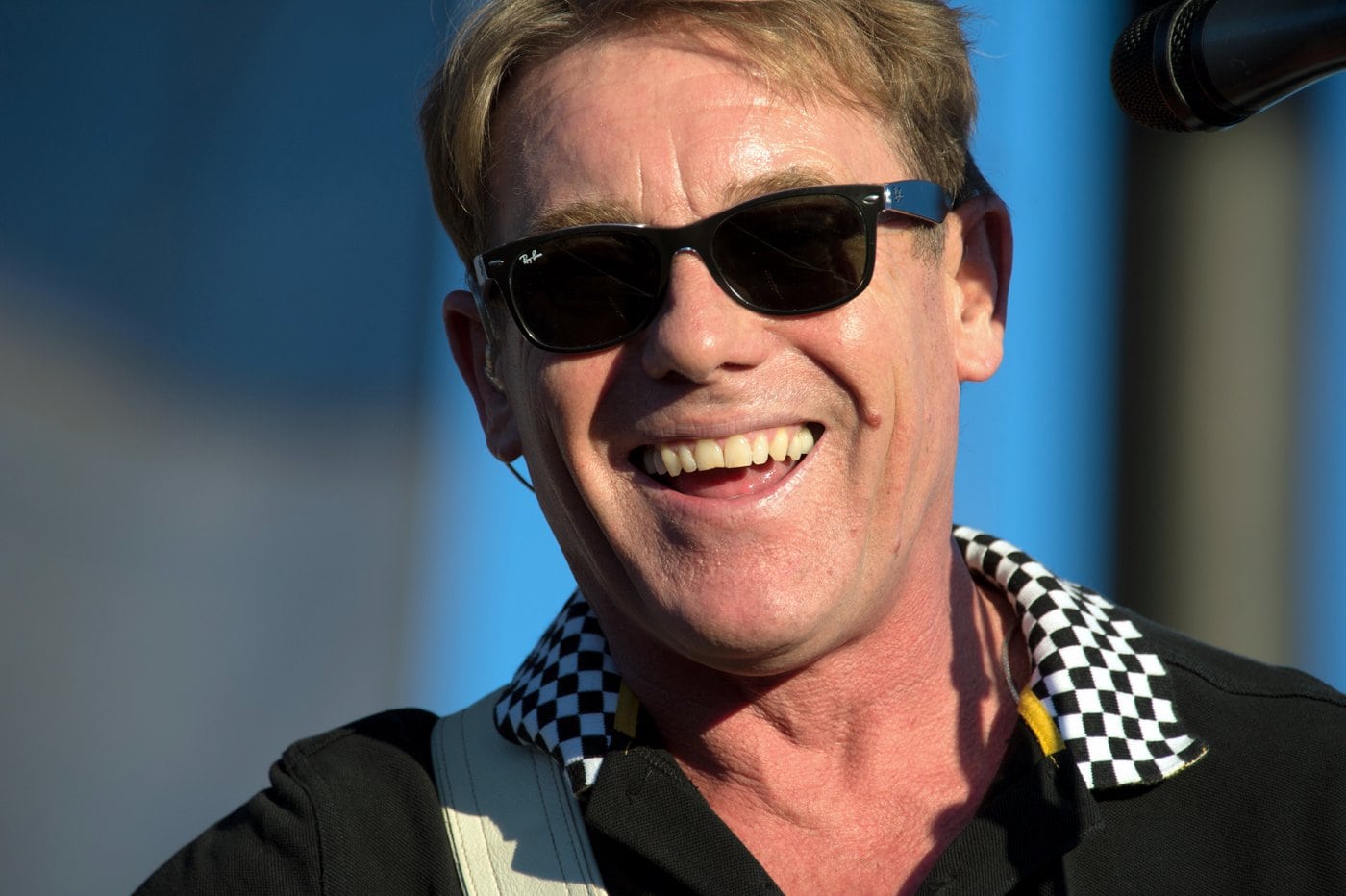
Dave Wakeling: English Beat & General Public videos
Here’s a little music video retrospective with some highlights from Dave Wakeling’s long career.

